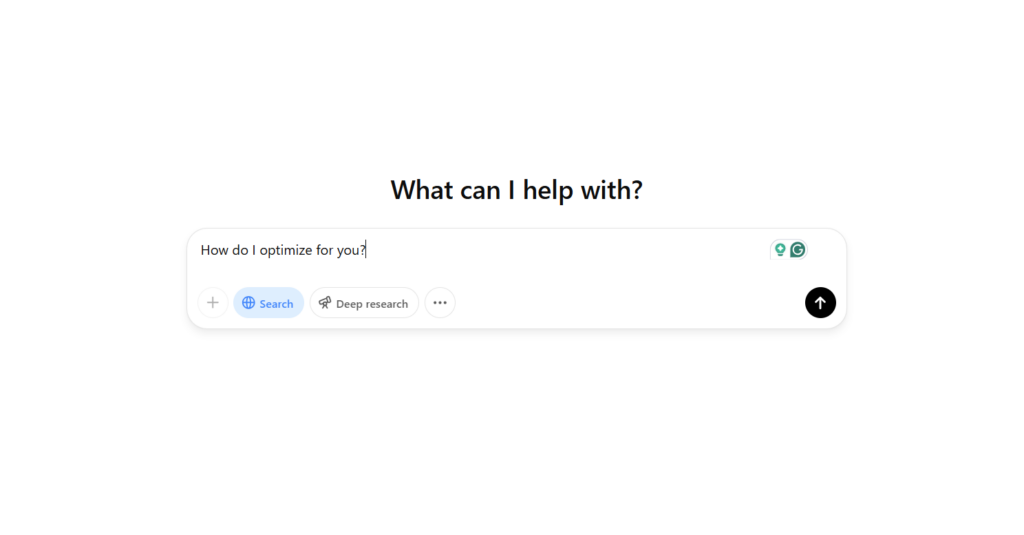Tackling search engine optimization (SEO) without technology may seem daunting, but with our help, you can master the basics without using software. If you’re just starting out, or if you would like to take a more hands-on approach, there are several tech-free, common-sense methods to optimize your website for improved performance. Start with our guide to tech-free SEO basics, and get on the right path to greater visibility and increased value.

How To Optimize Your Site Without SEO Software
Several elements impact a site’s search performance, and you’ll need special software or programs to truly take advantage of many of them. But you can tackle some of them without using any extra software. Consider these tech-free basics for optimizing your site:
1. Design a User-Friendly Website for Positive Engagement
Google and other search engines examine a variety of undefined “interaction data” to determine how to rank a site. While this standard remains a bit nebulous, it is generally understood that greater engagement positively correlates with improved rankings. Components that create an engaging user experience include:
- High-quality, relevant content
- Logical site structure that’s easy to navigate
- Fast-loading page speed (less than three seconds)
- Mobile- and desktop-friendly design
2. Use Built-in Search Engine Features To Identify Keywords
Keyword research is integral to search engine optimization. Using the right keywords in the right way tells algorithms and users what to expect on your page. But you don’t need tools to find keywords: Google, Bing, and other search engines have built-in features you can use to create a keyword list and optimize your site. Use these tools to manually research keywords:
- Google’s Auto-Complete: When you type in a word or phrase on Google’s home page, it offers suggestions for how to complete your search query. These can give you insight into what others are searching for related to your initial keyword.

- Google’s People Also Ask (PAA): Users can click through to your web page from the People Also Ask featured snippet to learn more. These results offer insight into the questions users are asking about your keyword or product and can guide how you structure your content.

- Google’s Related Searches: When you search for a keyword in Google, it automatically offers related terms that can help direct you to more specific results on another search engine results page (SERP). These related searches are especially helpful in creating a list of semantic keyword matches you can incorporate throughout your content.

- Organic Results: A search engine’s organic results offer unique insight into what’s working for your target keyword. These pages are optimized in such a way that they earn coveted positioning above the fold in the SERP, and you can look at their page titles and meta descriptions to get a sense of secondary keywords that could help boost your pages’ performance.
3. Analyze Competitor Results To Identify Gaps & Shortcomings
Once you’ve identified your target keywords, you can analyze competitor approaches to determine where your site is falling short. Look at the top results for each keyword you’ve identified and examine how your competitors handle each element to discern how to compete in the relevant SERP landscape:
- Do the top results for your target keywords align with your objectives and your established competitors? If not, you may want to reevaluate your chosen keywords. Take a look at how your competitors are targeting comparable products or categories and let that inform your approach.
- Look at the meta elements for top-ranking pages, including the page description and page title. These elements on your competitors’ pages can give you a sense of secondary keywords you could incorporate to boost your own site’s performance.
- Take it a step further and examine the footer content and other on-page elements for top-ranking pages. What can the header, opening sentence, and overall content approach tell you about what users and the algorithms value about this topic? Then, ask how you can apply that knowledge to your own purposes.
4. Establish Authority Through Expert, Keyword-Optimized Content
Algorithms look for authoritative content as an indicator of quality, and your brand should easily be able to establish expertise in your given industry. The element of authority is important to keep in mind whether you’re optimizing category pages, product pages, or blog content. Ideally, both objectives will align: Choose topics that address your target keywords but also allow you to demonstrate your unique knowledge or insight.
3 Benefits of Hiring an Agency To Handle SEO Tech
The tech-free SEO approaches outlined above can certainly help your site’s performance. But creating an SEO strategy that’s not driven by data is like trying to give directions from an unknown starting point. This is where an agency comes in: Marketing professionals can perform a thorough audit of your site using the best tools in the industry, and then interpret those results to develop an effective optimization strategy. Consider these practical benefits of working with an SEO agency for everything from site audit to page-by-page optimization to results analyses.
- Access – You may not need tools to optimize your website, but they certainly help. An agency of SEO professionals will have access to the best tech in the game. With a plethora of tools at their disposal, SEO professionals can pick and choose what will work best given your context and objectives.
- Time – A thorough audit and the followup adjustments take time that you may not have in the midst of other responsibilities. When you hire an SEO professional to perform an audit of your site, they know the right technology to use to get the job done efficiently, freeing you to focus on other business goals.
- Personalization – An automated SEO audit will provide suggestions for improving your website, but it’s void of context. In contrast, an agency can interpret the results of the audit with your particular business goals in mind, creating a personalized strategy that’s poised to achieve those objectives.
Eight Oh Two is a proven leader in search engine and performance marketing focused on driving superior results by leveraging best-in-class technology with the very best in human intelligence. Contact us today to learn how we can help optimize your content and boost your blog conversions.





